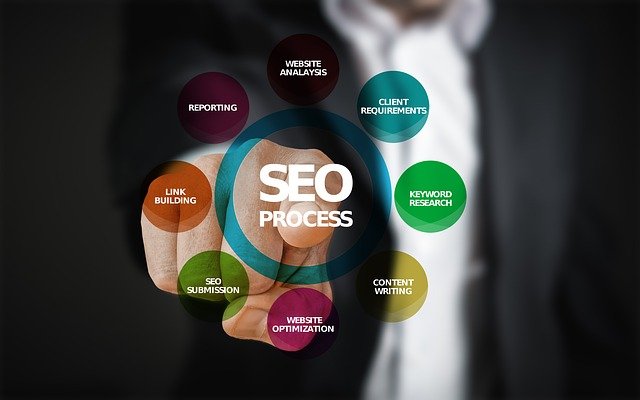Search engine optimization is constantly evolving, with a growing industry dedicated to generating organic traffic for any organisation with a website. At the same time, search engines are getting smarter, thanks to machine learning, artificial intelligence and other algorithmic advances.
Competition to rank for your chosen keywords has never been fiercer, especially for eCommerce brands and those reliant on web traffic for revenue.
And yet, despite years of accumulated SEO knowledge, mistakes still creep in—advanced, technical and basic mistakes that reduce the effectiveness of SEO marketing and techniques designed to achieve results. Here are surprisingly common mistakes that happen far too often and how to avoid them.
#1 Ignoring Long-Tail Keywords
When it comes to eCommerce, particularly sectors with well-established players—e.g. department stores, national and international chains—everyone is competing for page one positions.
It might seem impossible for small and medium eCommerce businesses to get anywhere close to page one of Google and other search engines. Anything a small business can throw at a problem, a large brand can throw 10 times as much. Bigger budgets for SEO and PPC usually mean it’s easier to rank higher more consistently. But this isn’t the case for every keyword.
Not only is it expensive to try and compete for generic keywords, but most of them won’t generate the conversions you need. You don’t want people who aren’t ready to buy or who are only looking for free information and advice.
Smaller businesses need to take a smarter, more strategic approach. Say, for example, you are selling bathrooms. In the UK, B&Q, IKEA and other national chains are going to rank high for the main keywords, ‘bathroom,’ ‘bathroom suite,’ etc. Imagine how many other more useful variations exist: keywords and phrases for every product—very useful when customers are comparing prices—and every keyword variation that includes local searches.
Combining long-tail with local and other comparison-inspired keywords is some of the smarter ways smaller businesses can compete for a percentage of the web traffic you need. Providing you introduce these naturally, organically and carefully into web copy, blogs, landing and product pages.
If you plan your website content thoroughly, there are ways you can incorporate long-tail keywords into your pages for an effective impact on search. If you run an eCommerce store, here’s a great guide and template which will help you along the way.
#2 Failing to Optimize for Local Search
Businesses with brick and mortar locations cannot afford to ignore local search. You want people to find you. They need to know where you are, when you are open and how to get in contact.
Take a look at Google My Business—formerly Google Places—if you haven’t done so already. There’s no point investing in a website and social media without making it easy for people to find you in the real world. Local search results—which include Web and physical addresses, and phone numbers—can also be supported by other third-party platform results, depending on your industry.
It also helps to list your business on other relevant platforms, such as Yelp, TripAdvisor, FourSquare, to further enhance local search results and discoverability.
#3 Keyword Stuffing and Content Spinning
Keyword stuffing and content stuffing, or worse, duplicate content, are among some of the worse mistakes that professionals can make. It still happens. Neither approach will generate long-term results.
Google and other search engines have been fighting back against spam tactics since SEO was created. Keyword stuffing is too easy to spot. Filling web pages and off-site pages with keywords is unnatural. Content spinning is similar. Blogs and articles should contribute something useful to human readers, not automated search engine bots.
Once upon a time, it might have gone unnoticed; now it looks desperate and clearly only aimed at search engine spider bots. Search engines are too smart for this kind of trick, so it’s not worth trying to make your website appear more relevant and larger than the reality.
#4 Blank or Weak Title Tags, Meta Descriptions & Image Tags
You can get the right number of keywords in web pages, articles/blogs and URLs but can fall down when it comes to the title tag optimization , Meta and image/alt tags.
Take the time to fill in everything that gets crawled and indexed, even when it’s not visible to web visitors. Every page should have a different title. Within each, you can also put your company name. The same goes for meta descriptions as they need to be different for every page and tailored to encourage people to click and find out more.
Image tags are another way to ensure pages and articles are indexed for relevance in search engine results, so “Img1_21_July2017.JPG” isn’t as useful as, “Ceramic bathtub in Lavender Suite.jpg.”
#5 Slow Load Times
Faster loading websites perform better in search engines. Test your site to ensure you aren’t losing web traffic, potential buyers and search engine rankings.
Websites that are not optimised and user-friendly for mobile devices are also going to lose ranking positions compared to competitors. Speak to your web host or web developer to ensure your website loads quickly and efficiently on every device and browser.
Test your website here for various keywords to see how you perform. Here are a few ways you could be unintentionally harming your website’s search engine rankings
- Aiming for generic keywords instead of smart long-tail and local keywords
- Failing to optimise your website for local search
- Keyword stuffing, content spinning and duplication
- Blank/Weak title tags, meta descriptions and image tags
- Slow website load times
This is a Contributor Post. Opinions expressed here are opinions of the Contributor. Influencive does not endorse or review brands mentioned; does not and cannot investigate relationships with brands, products, and people mentioned and is up to the Contributor to disclose. Contributors, amongst other accounts and articles may be professional fee-based.

